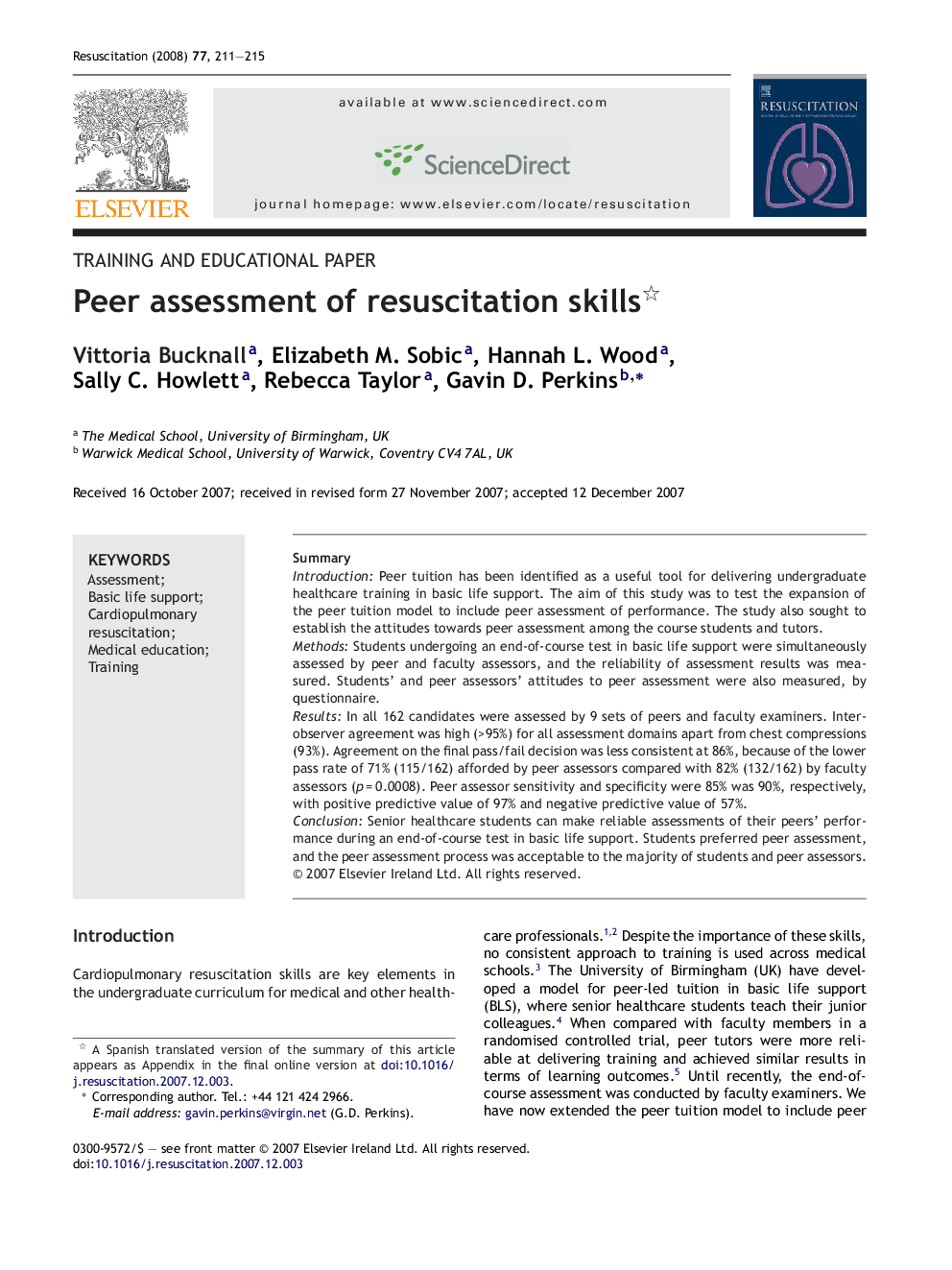| Article ID | Journal | Published Year | Pages | File Type |
|---|---|---|---|---|
| 3010531 | Resuscitation | 2008 | 5 Pages |
SummaryIntroductionPeer tuition has been identified as a useful tool for delivering undergraduate healthcare training in basic life support. The aim of this study was to test the expansion of the peer tuition model to include peer assessment of performance. The study also sought to establish the attitudes towards peer assessment among the course students and tutors.MethodsStudents undergoing an end-of-course test in basic life support were simultaneously assessed by peer and faculty assessors, and the reliability of assessment results was measured. Students’ and peer assessors’ attitudes to peer assessment were also measured, by questionnaire.ResultsIn all 162 candidates were assessed by 9 sets of peers and faculty examiners. Inter-observer agreement was high (>95%) for all assessment domains apart from chest compressions (93%). Agreement on the final pass/fail decision was less consistent at 86%, because of the lower pass rate of 71% (115/162) afforded by peer assessors compared with 82% (132/162) by faculty assessors (p = 0.0008). Peer assessor sensitivity and specificity were 85% was 90%, respectively, with positive predictive value of 97% and negative predictive value of 57%.ConclusionSenior healthcare students can make reliable assessments of their peers’ performance during an end-of-course test in basic life support. Students preferred peer assessment, and the peer assessment process was acceptable to the majority of students and peer assessors.
